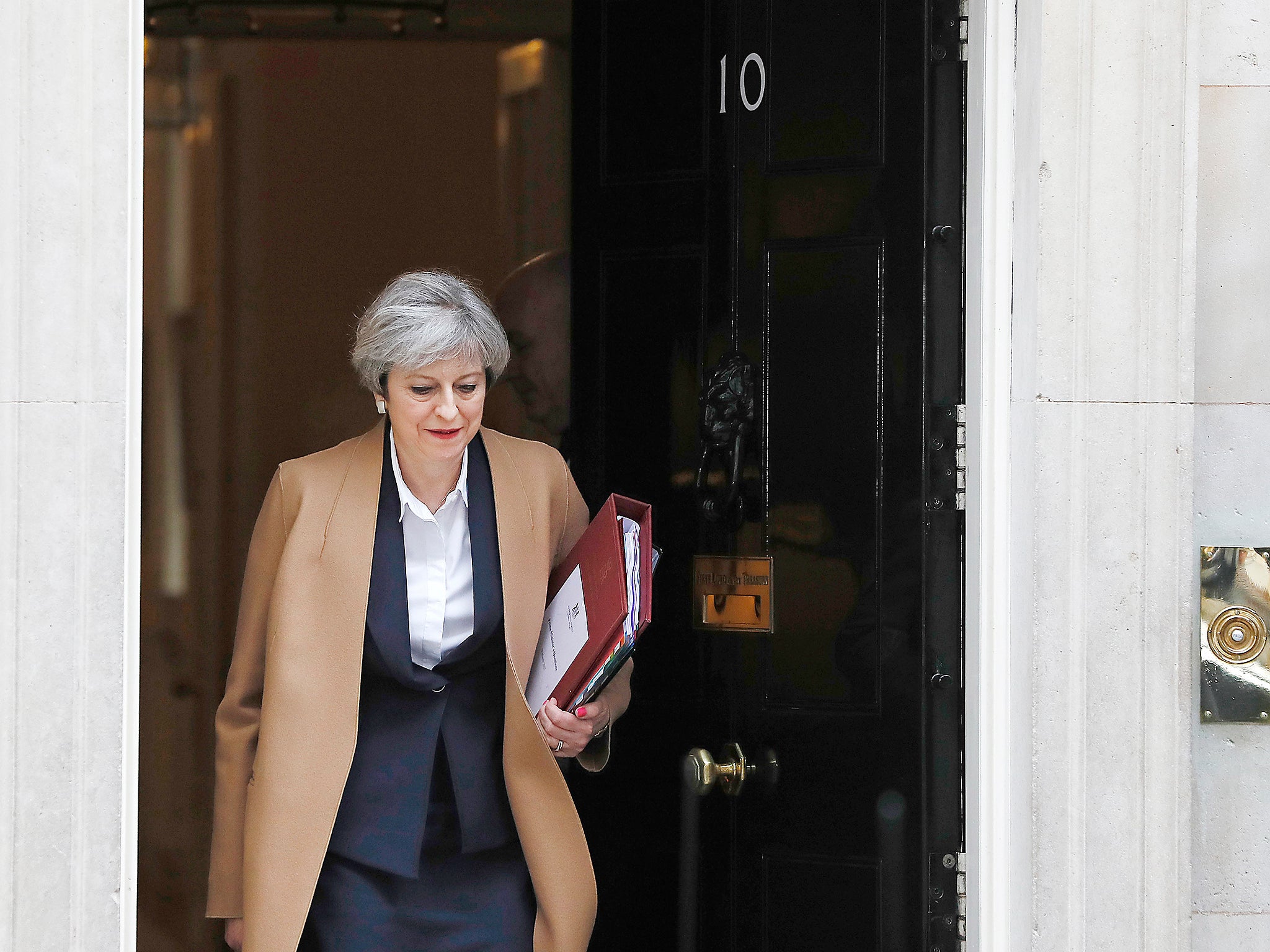Theresa May: British military trainers will go to Jordan to help fight against Isis
It comes amid ongoing controversy surrounding the Yemen conflict involving both Saudi Arabia and Jordan

Theresa May has announced a plan to send British military trainers to Jordan to boost the nation's air force at the start of a three-day tour of the Middle East.
The programme’s aim is to help the country fight Isis but comes amid controversy surrounding the Saudi-led military campaign in Yemen, which also involves Jordan.
The Prime Minister wants to focus her visit, taking in both Jordan and Saudi Arabia, on tackling the Jihadi group and deepening trade ties.
But the trip was accompanied by an embarrassing announcement from the Metropolitan Police that its war crimes unit is considering an investigation into Saudi activities in Yemen.
Ms May said: “It is clearly in the UK's security and prosperity interests to support Jordan and Saudi Arabia in tackling regional challenges to create a more stable region, and in delivering their ambitious reform programmes to ensure their own stability.
“An even deeper partnership with these countries, and greater knowledge and understanding of one another, will increase our ability to address the issues that concern us, including the promotion of international standards and norms.
“To tackle the threats we face from terrorism and from geopolitical instability, we must meet them at their source.”

She added: “Jordan is on the front line of multiple regional crises and I'm clear that by working with them, we are helping keep British people safe. Likewise in Saudi Arabia, we must never forget that intelligence we have received in the past from that country has saved potentially hundreds of lives in the UK.”
On Tuesday Ms May will head to Saudi, the UK's largest trading partner in the Middle East with goods and services exports totalling £6.6bn in 2015. Talks are set to focus on stronger ties following the vote for Brexit.
The Prime Minister has faced repeated calls to suspend arms sales to Riyadh amid claims of widespread human rights abuses in Yemen during the coalition bombing campaign it is leading, which includes Jordan.
The Saudis back the war-torn country's internationally recognised government against Iran-backed Houthi rebels.

Britain has continued to allow arms sales, with more than £3.3bn of exports since the bombing began in March 2015. At least 10,000 people have been killed during the war, according to the United Nations.
Foreign Secretary Boris Johnson apologised at the weekend to the Saudi government after an activist in London tried to carry out a citizen's arrest of one of the Gulf state’s generals, while another protester threw an egg at the senior officer as he arrived at an event.
But further embarrassment has been caused after the Met made its announcement, in a statement: “On Thursday 30 March 2017, the Metropolitan Police Service received a referral of an allegation of war crimes, made against Saudi Arabia, committed in Yemen.
“Following receipt of the referral, the MPS war crimes team began a scoping exercise and contacted those making the allegations.
“There is no investigation at this time, and the scoping exercise continues.”
The Saudi visit comes days after the Government was pressed to explain why the state “consistently features in the back story of terrorists”, including the Westminster attacker.
Khalid Masood, the extremist who carried out the 82-second rampage on 22 March, worked in the country for several years.
The Kent-born 52-year-old mounted the kerb twice as he sped across Westminster Bridge, killing three people and leaving dozens injured, before charging the Palace of Westminster grounds armed with two knives, killing PC Keith Palmer.
Join our commenting forum
Join thought-provoking conversations, follow other Independent readers and see their replies
Comments
Bookmark popover
Removed from bookmarks